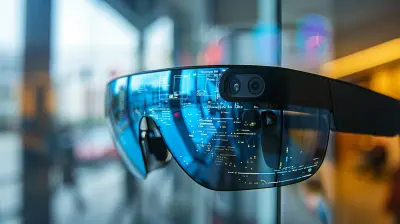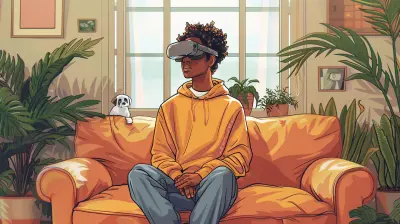How Mobile Devices Are Revolutionizing Fitness and Wellness
13 September 2025
Let’s face it—our smartphones are with us practically 24/7. From the moment we wake up to the last scroll before bed, these digital sidekicks are glued to our hands. But here's something worth thinking about: they're doing a lot more than just delivering memes and messages. Mobile devices are straight-up transforming how we approach fitness and wellness.
In other words? Your phone might just be your best gym buddy, nutritionist, yoga instructor, and sleep coach—all rolled into one sleek device.
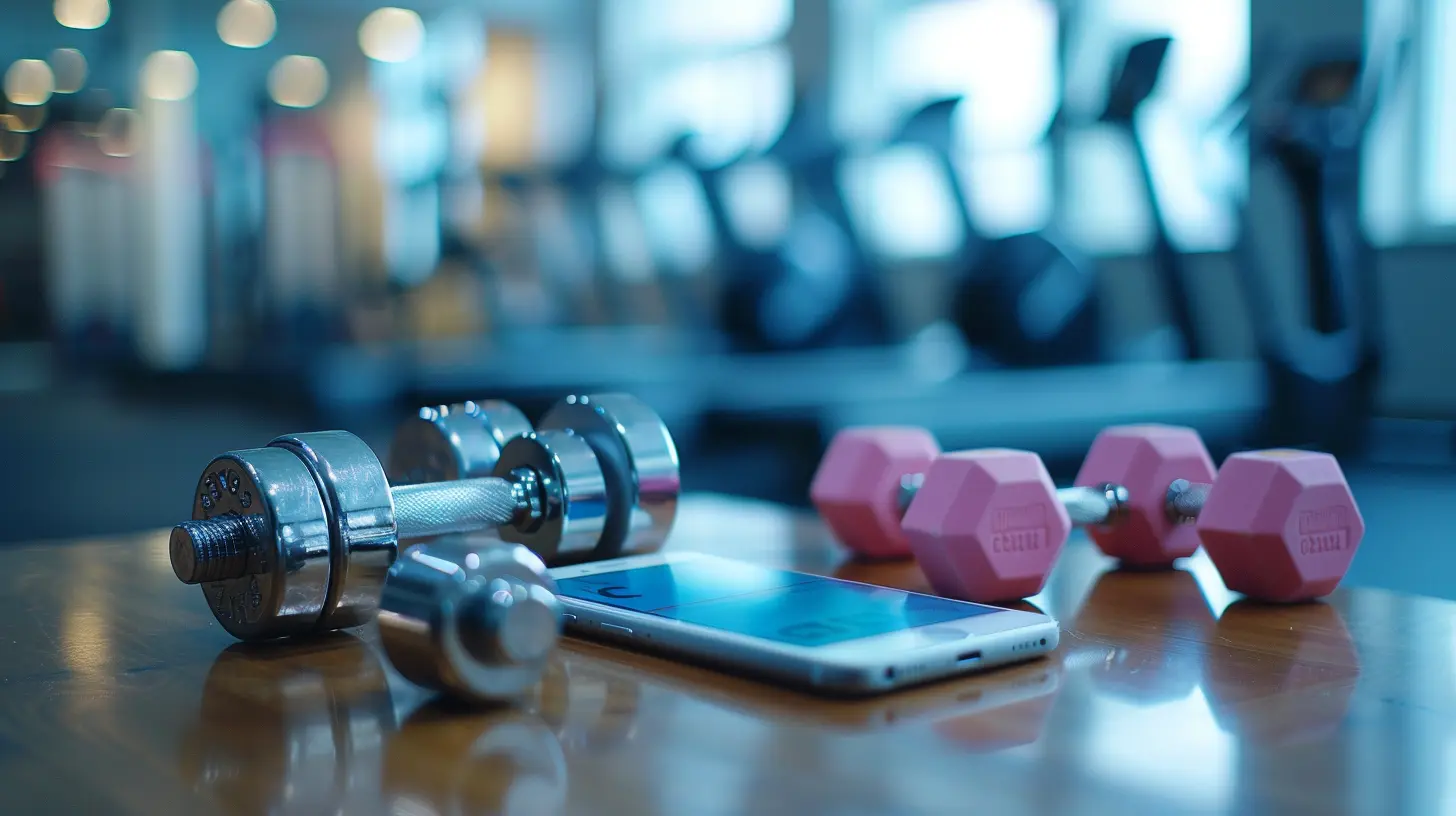
The Digital Fitness Boom: A New Era of Health
Remember when getting fit meant dragging yourself to a gym or buying stacks of workout DVDs? That’s ancient history now. Thanks to mobile tech, your entire wellness routine fits in your pocket.Apps, wearables, and smart integrations have created a fitness revolution—one that’s accessible, affordable, and, dare we say, even fun.
But how exactly are mobile devices changing the way we stay fit and healthy? Buckle in; we've got a lot to cover.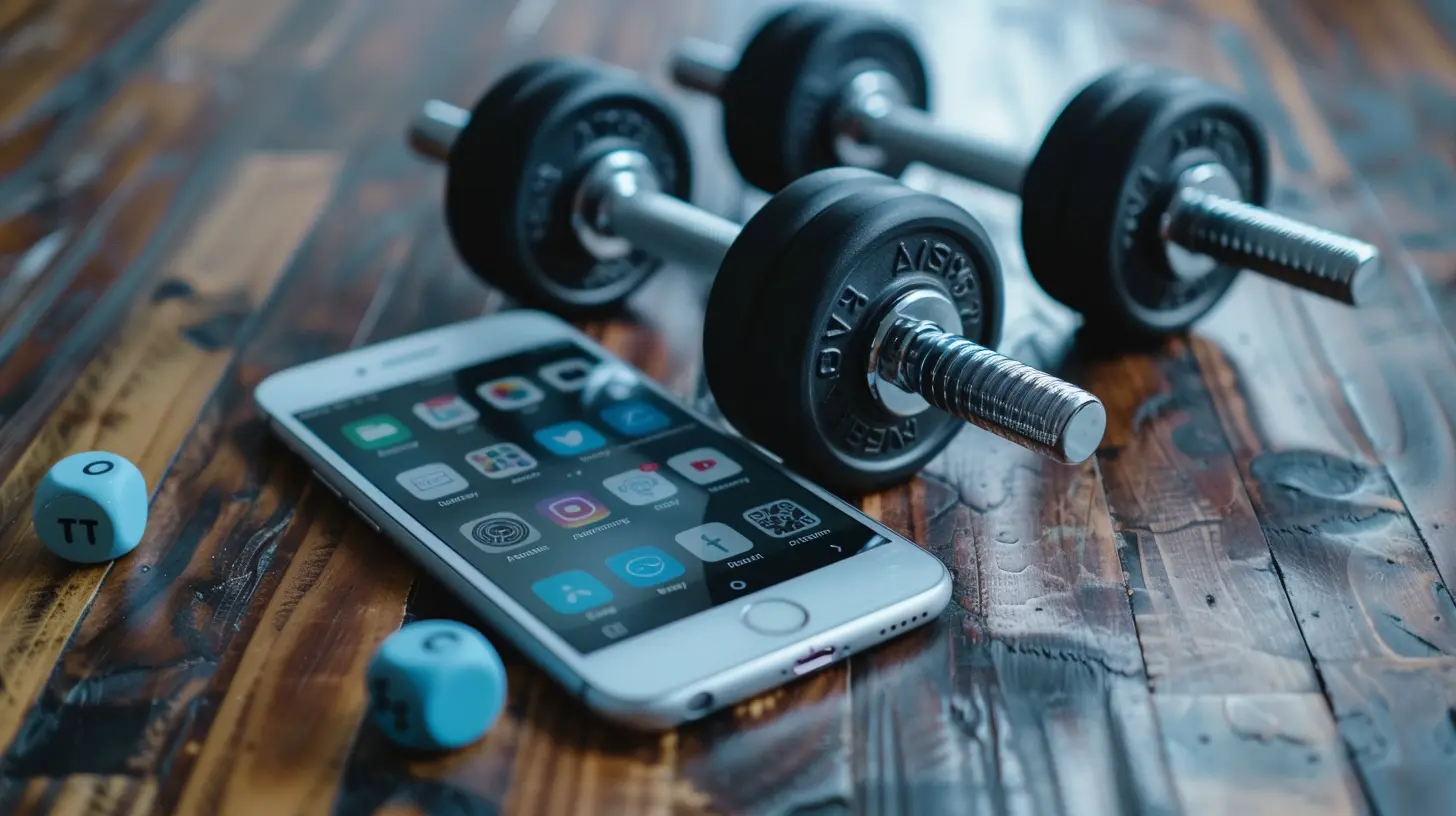
1. Fitness Apps: Your Pocket-Sized Personal Trainer
There are thousands of fitness apps out there, and yes, some are way better than others. But one thing’s for sure—they’ve made working out more approachable than ever.Want to lift weights? There’s an app for that.
Trying to trim down with HIIT? Yep, there’s an app.
Learning yoga, pilates, or even martial arts? You guessed it—apps galore.
Why they're game changers:
- Accessibility: You don’t need a gym membership or fancy equipment to get started.- Customization: Many apps personalize workouts based on your goals, fitness level, even mood.
- Accountability: Push notifications and progress tracking keep you in check (even when motivation dips).
From global giants like Nike Training Club to niche gems like FitOn or Centr, mobile fitness apps are democratizing fitness in ways no one could’ve predicted.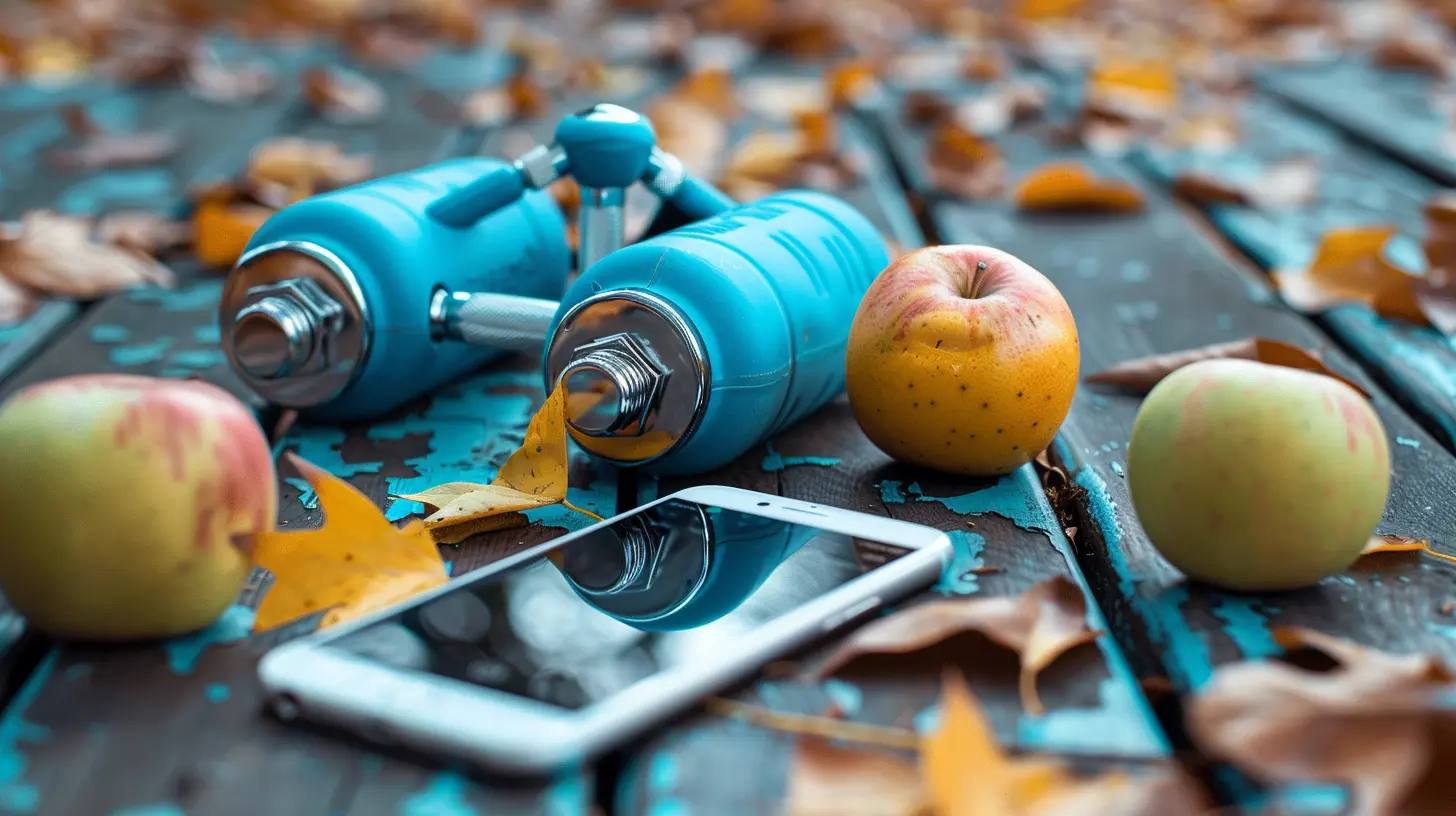
2. Wearable Tech: Health Data You Can Actually Use
The rise of wearable devices like smartwatches and fitness trackers is a clear game changer. Brands like Apple, Fitbit, Garmin, and Samsung have turned our wrists into information hubs.Wearables monitor more than just your steps. We're talking:
- Heart rate
- VO2 max
- Oxygen saturation
- Sleep cycles
- Workout intensity
- Stress levels
Why this matters:
Knowledge is power. With real-time access to your health data, you can make smarter decisions about your lifestyle. Imagine trying a new running route and instantly seeing how your heart responds. That kind of feedback wasn't even possible for elite athletes a few decades ago—now it's available to all of us.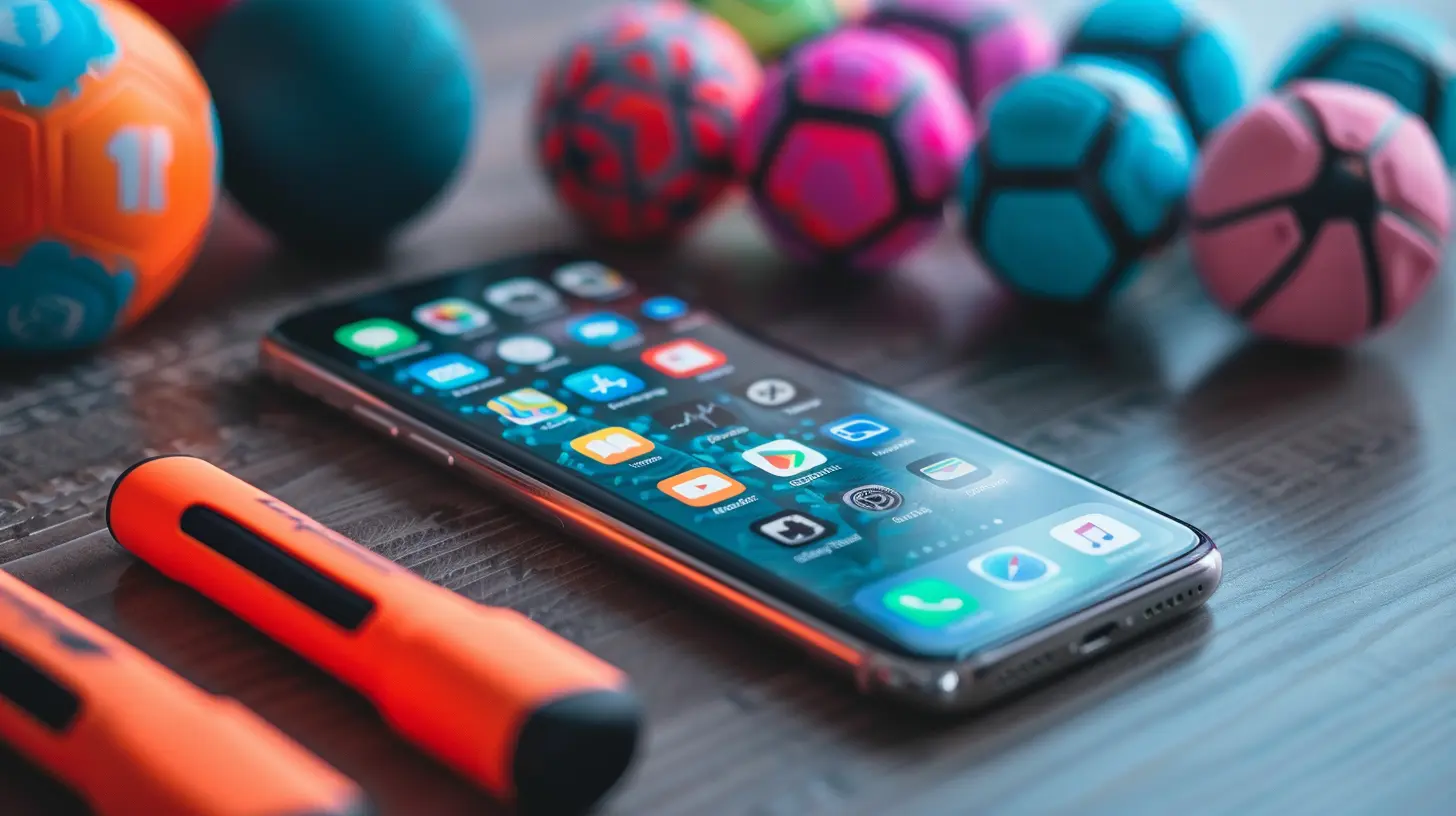
3. Nutrition Tracking: Awareness Like Never Before
Ever feel like you’re eating healthy but not seeing results? Been there. That’s where nutrition apps step in.Mobile apps like MyFitnessPal, Lifesum, Yazio, or Noom break down exactly what you’re putting into your body—calories, macros, vitamins, everything.
Benefits of mobile-centered nutrition tracking:
- Mindful Eating: Logging your meals makes you realize how much that "quick snack" adds up.- Goal Alignment: Whether you're bulking, cutting, or maintaining, these platforms help you stay on track.
- Personalized Insights: Some apps now use AI to suggest meals or warn about potential dietary issues.
It’s not about obsessing over every bite—it’s about being empowered with information so you can work smarter, not harder.
4. Mental Wellness Goes Mobile
We're finally starting to understand that fitness isn’t just physical—it’s deeply connected to our mental and emotional health. Luckily, mobile devices are leading the charge in this field too.From meditation apps like Calm and Headspace to mood trackers and digital therapy sessions, our phones are helping us manage stress, anxiety, and even chronic mental health conditions.
Why it works:
- Accessibility: Therapy and mindfulness are no longer “luxuries” or taboo.- Anonymity: You can explore your mental health without judgment.
- Routine Building: Apps remind you to breathe, reflect, and even journal.
Mental wellness is just as important as doing that extra set of squats. And now, it’s just a tap away.
5. Sleep Tracking: Because Recovery Matters
Let’s not underestimate the power of good sleep. You can have the perfect diet and workout plan, but if you’re running on two hours of shut-eye, you’re going nowhere fast.Mobile devices (especially wearables) are making it easier than ever to track sleep quality. They’ll show you when you’re tossing, how long you were in REM, and even how your habits affect your rest.
Why sleep tracking changes the game:
- Better Recovery: Sleep is when muscles rebuild and hormones regulate.- Smarter Bedtime Habits: Apps give feedback that helps improve routines (like reducing blue light or caffeine before bed).
- Overall Wellness: Good sleep is tied to weight control, emotional health, and productivity.
It’s not just about “how long” you sleep. It’s about “how well” you sleep—and there’s an app for that, too.
6. Real-Time Remote Coaching and Community
Ever feel like you’re in this fitness journey alone? Mobile technology has flipped that script.Virtual personal trainers, live workout classes, and fitness communities are thriving. Platforms like Peloton, Apple Fitness+, and Sweat offer real-time feedback and community engagement, creating a sense of accountability and motivation that traditional solo workouts just can’t match.
Perks of mobile community support:
- Encouragement: High-fives and progress shoutouts? We’re here for it.- Social Motivation: Friendly competition helps you stick to your goals.
- Expert Advice: Coaches are no longer limited by geography—anyone can access world-class guidance.
Let’s just say, your support crew is now just one notification away.
7. Gamification: Making Fitness Fun Again
Remember how addictive mobile games can be? Well, developers have taken that same engaging energy and applied it to fitness.Apps like Zombies, Run! or Pokémon GO encourage physical movement by transforming your workout into an interactive game. Even standard fitness apps borrow gaming mechanics—badges, leaderboards, challenges—to make working out more exciting.
Why it’s smart:
- Increased Adherence: People are more likely to stick with what they find exciting.- Fun Over Force: If a walk becomes a zombie escape mission, you're more likely to do it.
- Involvement: It makes fitness feel less like a chore and more like a quest.
Movement + fun? That’s a combo we’ll always swipe right on.
8. Personalized Health Insights Through AI and Machine Learning
Now this is where things get wild—in a good way. Mobile devices are starting to use artificial intelligence to analyze your behavior and offer hyper-personalized recommendations.Let’s say your wearable notices your heart rate’s elevated during sleep and that you’ve been skipping workouts. It might suggest you dial back your intensity or offer calming techniques. Some apps even predict injuries based on movement patterns and fatigue.
Future-focused benefits:
- Preventive Health: Spot concerns before they become issues.- Tailored Fitness Plans: No more cookie-cutter workouts.
- Optimized Performance: Athletes (and everyday users) can train smarter.
Think of it as having a digital health assistant in your pocket, constantly learning and adapting to your body.
9. Total Wellness in One Ecosystem
What’s even cooler? All of these features—nutrition, cardio, stress, sleep—can live in a single digital ecosystem.Apple Health, Google Fit, and Samsung Health pull together data from your workouts, wearables, diet, and lifestyle into one unified platform. So instead of juggling 10 different apps, you get a full 360-degree view of your health.
Why it’s a big deal:
- Clarity: See patterns you wouldn’t notice otherwise.- Convenience: One dashboard, all your info.
- Integrated Care: Share data with your doctor or trainer easily.
We’re literally witnessing the fusion of body, mind, and machine—and it's kinda awesome.
10. The Downsides We Should Acknowledge
Let’s be real—it’s not all rainbows and six-packs.There are legit concerns with screen addiction, misinformation, and the pressure social media can add. And not everyone has access to the latest devices or reliable internet. It’s important to strike a balance and use these tools wisely, not obsessively.
Just because your phone can track your every move doesn’t mean it should run your life. Use it as a guide, not a dictator.
Final Thoughts: Tech Isn’t a Shortcut—It’s a Support System
Mobile devices won't do the push-ups for you. But they will help you plan better, stay on track, and stay inspired when motivation dips. They’ve taken fitness and wellness out of elite circles and made them mainstream, inclusive, and fun.So no, owning a smartwatch won't automatically get you in shape—but using it as a tool alongside effort, consistency, and a mindset shift just might.
The fitness revolution is already here, and it fits in your back pocket.
Now, what are you waiting for? Charge that device, put on your sneakers, and let tech give your wellness goals a serious glow-up.
all images in this post were generated using AI tools
Category:
Mobile TechnologyAuthor:

Ugo Coleman
Discussion
rate this article
1 comments
Avery Wallace
Great insights on the impact of mobile devices in fitness! The integration of apps and wearables truly enhances motivation and tracking. It would be interesting to explore more about user privacy concerns and how technology can address them while promoting wellness.
September 14, 2025 at 5:06 AM

Ugo Coleman
Thank you for your thoughtful comment! User privacy is indeed crucial as we embrace technology in fitness. I appreciate your suggestion and will consider exploring this topic further in future articles.
